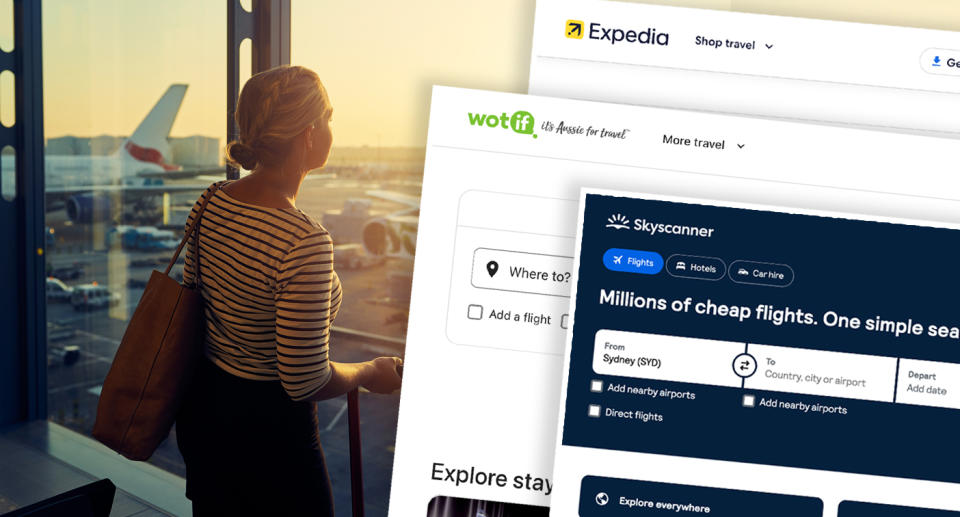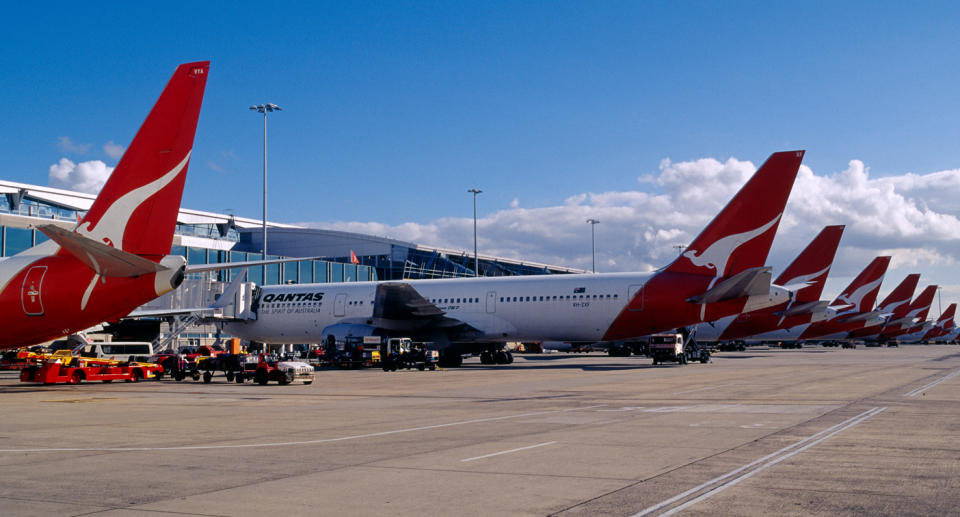Skyscanner, Expedia or Wotif? Expert’s surprising advice for cheap flights
4 min read
For many Australians, an overseas holiday includes a visit to a flight comparison site or aggregators such as Skyscanner, Wotif or Expedia to find the best deals. But is this the best approach?
An expert has told Yahoo Finance why it can be best to start your research on these sites to get an idea of their prices. However, it’s not always wise to book your flights through them.
“Using an aggregator can be really useful to get an idea of what your options and the prices are,” Angus Kidman, editor at large and travel expert at Finder, told Yahoo Finance.
“And you can sometimes find some good deals. Having said all that, I’m a lot more cautious about actually booking through the aggregator, because that can lead to problems.”
ADVERTISEMENT
Booking directly through airlines may be the smarter approach, Kidman said.
But as the cost of living crisis continues to bite and Aussies seek out bargains, aggregators are growing more popular. Jarrod Kris, travel expert and principal commercial manager for APAC with Skyscanner told Yahoo Finance: “Every day we search 80 billion prices and construct 30 billion itineraries for millions of travellers around the world.”
RELATED
Last minute changes can be harder
One of the biggest challenges with booking through a comparison site rather than an airline directly is if you need to change something urgently — say, flight dates or baggage allowance.
“If you book through an aggregator, any changes… have to go through the aggregator,” said Kidman, who typically flies at least twice a month. “Especially if the aggregator is not based locally, it can be really difficult.”

“Where the difference really shows up is if something goes wrong during the trip. At least if you’re dealing with the airline directly, they will probably have people at the airport.”
However, Kris told Yahoo Finance the aggregator’s travel partners, whether it’s airlines or online travel agents, will keep travellers informed of any changes “so that the experience will remain seamless.”
Comparison sites can save you money – sometimes
Kris said Skyscanner’s searches for travellers “help them find the best deals for both single-leg and multi-leg flights alike.”
Kidman, however, disagrees.
“You’re not going to see a cheaper airfare on an aggregator for a single [leg] flight than you would from the airline itself. I’ve not encountered that in many years,” he said.
“What you might find cheaper is when you start joining things together, when you’re trying to go overseas, or trying to go to more than one place.”
For multi-leg itineraries — where you switch airlines during your journey — comparison sites will join together flights from different airlines even if they aren’t affiliated (eg part of the same alliance), unlike booking at an airline’s site.

However, that neutrality means a greater chance of being unable to check your bag to your final destination.
“They won’t make it clear that there’s not actually one booking,” Kidman warned of some aggregator sites.
“So if you’re flying from Australia to Europe and maybe passing through a couple of cities in Asia, on the way, you might have to collect your bags after each flight, and then re-check in. This might be a) inconvenient and b) physically not possible.”
This isn’t inherently an aggregator issue, so passengers should always check before booking, even on an airline’s website.
“If you take a Qantas flight into Sydney, and then a Jetstar one to the Gold Coast, you’re going to have to sort out your own baggage for that last leg,” Kidman said.
“Qantas aren’t going to do that, even though they own both airlines.”
Kris said Skyscanner notes “self-transfer” on itineraries that include connecting flights “with different airlines, or airlines not in the same alliance”.
Frequent flyer points may not make it across
Comparison sites typically allow you to collect frequent flyer points, but there can be problems that leave you chasing the airline for your points after you get home.
For example, the iFly aggregator — which even other comparison sites will forward you to — warns: “Mileage points are not guaranteed” during the booking process.
“It may not match,” Kidman said of the old computer systems still used by many airlines.
“Frequent flyer systems, in tech terms, are often strung together with wires and bits of spaghetti.”
“[Also] if the name on your booking doesn’t literally match the way that your name is stored in the airline’s frequent flyer system, it may not match up and register”.

Hidden fees less visible with overseas aggregators
Kidman warned that overseas aggregators “in some cases won’t include all the actual taxes and charges”.
“In Australia, you can’t quote, legally, flight fares without including all the relevant taxes…you really need to make sure that when you say ‘wow, that’s a good bargain!’, that you’re comparing apples with apples,” Kidman said.
Get the latest Yahoo Finance news – follow us on Facebook, LinkedIn and Instagram.




